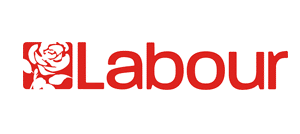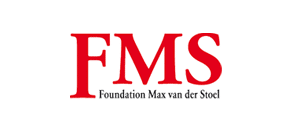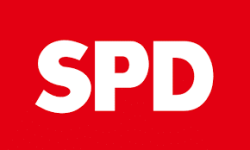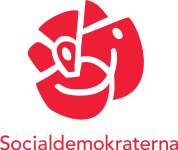Russia
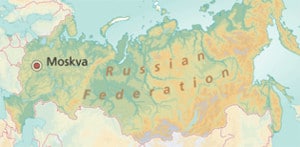
The Russian Federation is a federal semi-presidential republic and gained its independence in 1991 after the Soviet Union broke apart. The current political scene is dominated, to say the least, by President Vladimir Putin and his United Russia party. The September 2021 parliamentary elections resulted in another win for United Russia, granting them enough seats to pass laws without the support of other parties. However, in practice these “coalition partners” were already under heavy influence from the Kremlin. No true opposition parties have entered parliament, either because they did not win any seats or because they were banned from partaking. The political networks of the jailed politician Alexei Navalny are designated as “extremist”.
President Putin has used this new mandate to further his ambitions of restoring the glory of the Russian Empire and the former border of the Soviet Union. In 2008 Russia mobilized its troops to “liberate” the Georgian regions of Abkhazia and South Ossetia, which are recognized by only a few nations worldwide. In 2014 it did the same with the Ukrainian territories of Crimea and Sevastopol, which overwhelmingly “voted” in favour of secession from Ukraine in a highly contested local referendum. Fighting erupted in Ukraine’s Eastern regions Donetsk and Luhansk too. Relations were kept in check by the seemingly stable Minsk accords between Russia and Ukraine.
Putin’s decision to fully invade Ukraine in February of 2022 came as a true shock to many, fully disregarding the international treaty it had signed. After months of military build-up at the border and increasing tensions also with the new Biden-administration, Russia launched a full-scale invasion to “denazify” Ukraine and “liberate” its population. However, due to heavy resistance met by the Ukrainian military, Russia was forced to shift its attention solely to the East, where heavy fighting continuesFears of civilian casualties are high as Russian forces conduct artillery attacks on various Ukrainian cities and target critical civil infrastructure as winter is approaching.
The invasion is marked as a turning point in history and is condemned by the West, which has imposed heavy sanctions on the Russian economy. As a response, Russia is cutting-off Europe’s gas supply. Other, mostly developing countries, are wearier to pick sides. However, given the weight of the West, Russia is becoming even more isolated internationally than before. Despite Putin’s war propaganda, protests broke out and well-known Russians have spoken out against the war. These were later followed by protests against the mobilisation of 300,000 reservists, which simultaneously caused a mass exodus of Russian men to neighbouring and visa-free countries to escape conscription. As Putin’s war has been anything but successful to date, criticism of the Kremlin and military officials has occasionally been part of the domestic news, even despite the Kremlin’s crackdown on independent media and press freedom in an attempt to silence critical voices. It remains to be seen though whether Putin and his loyal clique will be deterred by these forms of civil dissent.
-
Want to get notified by mail when this country gets updated?
Subscribe to our newsflash below!
Key Info
1 Political Situation
Democratic backsliding
Power in Russia’s political system is concentrated in the hands of President Vladimir Putin. Since his election in 2000, Russia has experienced gradual democratic backsliding. The federation has shown an increasing level of human rights violations, repression of opposition parties and organisations and increasing control over media. Opposition parties have gained evor more difficulties in manifesting political programmes, campaigns, rallies and protests. The 2021 elections were the most unfree in the federation’s short existence. In practice, no opposition parties are tolerated any longer.
A vertical political structure has been consolidated by Putin and his United Russia party in the last decade. The Kremlin tries to uphold the façade of freedom and democracy, but elections are tightly controlled. The federative character of the country seems a formality, as regional autonomy is suppressed. Constitutional constraints on the vertical power structure are bypassed by amendments or loopholes, like the two terms consecutive limit on the presidency.
In theory there is a limited time period one can remain President. However, when in 2008 Putin was ineligible to run any longer, he picked his loyal friend Dimitri Medvedev as his placeholder. Putin assumed the post of prime minister before he returned to being president in 2012. In April 2021 Putin signed into law a change in the constitution that allows him to run for two more six-year terms. Prior to this law, Putin would have had to step down after his fourth and current term in 2024, but now he can stay on until 2036.
Political Rights and Civil Liberties
Civil liberties and political rights are reduced by the state, and therefore the NGO Freedom House has scored Russia as ‘not free’. Independent media outlets are suppressed by the Kremlin with all kinds of tools; formal (with repressive laws) and informal (through financial takeovers). The respected investigative journalist outlet RBC was sold in 2017 to a Putin ally. All critical journalists had to leave the company after the acquisition. Other critical media outlets, like Ekho Moskvy, are threatened and attacked. There have been cases of critical journalists dying under suspicious circumstances.
Opponents of the regime are being marginalised. Critical voices such as anti-corruption crusader Alexei Navalny were previously able to express their discontent with the regime through social media and rallies but are held back at critical moments, like elections. He is currently serving a two-year prison sentence after his suspicious illness, experts believe was a poisoning. He was arrested upon returning from his hospital treatment in Germany. The content his followers publish on social media is often taken down by Russia’s internet watchdog, and a tactical voting app developed by his organization for the 2021 elections has been banned. Other movements have also been undermined or even forbidden.
NGOs and other organisations are being repressed and controlled by the ‘foreign agent law’. Signed into force in 2006, the foreign agent law requires organizations engaging in political activity and receiving foreign funding to register as foreign agents. As a foreign agent, an organization is monitored more closely: ‘political activities’, including participation in protests, must be registered with authorities before they are allowed, material and finances need to be registered, etc. Critics have harshly condemned the law, as ‘political activities’ can be too loosely interpreted causing the law to be used arbitrarily, against all opposition.
Since the invasion control has tightened even further on critical voices. It is currently illegal to spread any information about the “special military operation” that is not in line with Putin’s propaganda machine. Through these new amendments to the law, the Kremlin is systematically repressing and silencing independent media and individuals from expressing critical opinions. This has not stopped journalists from interrupting live tv broadcasts or other prominent figures from speaking up though.
Human Rights and Gender Equality
The Kremlin openly tolerates discrimination and violence against the LGBTIQ community; the authorities have even passed an ‘anti-LGBTIQ propaganda law’ which prohibits any positive or neutral discussion of LGBTIQ matters with minors 2013. In July of 2022 parliament went even further, moving forward with a bill that would even ban public discussion of LGBTIQ relationships in a non-negative way altogether and prevent any LGBTIQ content from being shown in movie theaters. Several brutal incidents with LGBTIQ people were reported in recent years. In December 2022, an accepted bill that expands a ban on ‘LGBTIQ propaganda’ makes it illegal in Russia to suggest that non-heterosexual relations are normal.
Ethnic minorities are also tightly monitored by the Kremlin. Minority religious groups can be designated as “extremist” under Russia’s broad counter-extremism laws, a treatment that Jehovah’s Witnesses and Islamic groups have undergone. Furthermore, under federal pressure in 2017, schools in the Tatarstan region were forced to reduce Tatar language classes.
Women are underrepresented in public life and politics. Only 1/5th of the Duma consists of women, and there are only 2 female ministers in the current cabinet. Meanwhile, domestic violence is widespread in Russia. In February 2017, a law was signed that decriminalises violent acts in the home that only cause pain and do not result in permanent physical harm.
Relations with the West
Russia’s relations with the West have been in decline since the early 2000s, but have reached an all-time low now. Following the Euromaidan events in Ukraine (whereby the pro-Russian government stepped down), the annexation of Crimea in February 2014, and the support for the separatist movements in Eastern Ukraine, Russia has increasingly been put under pressure by Western countries, notably the US and the EU, who have issued multiplied sanctions against the country. Subsequently, Russia has increased tensions with almost every Western country over the last few years. Since the invasion in Ukrainewas initiated by Putin in February of 2022, the West has been trying to isolate Russia economically and within the international political system.
In response to the Western sanctions, Putin is reaching-out to other non-Western powers like China, Iran and India, as well as putting economic pressure on the West as far as it is capable. The gas-flow from Russia to Europe has decreased significantly already, but is likely to be put to a total stop by the Kremlin. Hiking-up energy prices only further contributes to high inflation levels, leaving their mark on Western economies and the world system alike. Meanwhile, Russia’s growth potential in the middle-long term has been dampened drastically. It has been banned from international financial markets, lost its main importers of oil and gas and has is not likely to attract businesses or foreign direct investment in the years to come.
Putin prepares for 2024
On 15 January 2020, after his annual state-of-the-nation address, Putin shocked the country (although not in comparison to February 2022) by announcing some radical constitutional changes along with the resignation of Prime Minister Medvedev. Shortly after this announcement former tax Chief Mikhail Mishustin was appointed as Prime Minister by Putin and tasked with forming a new government. Medvedev remained head of the United Russia party and was appointed as deputy head of the Security Council. This council is expected to be granted more power over the years as analysts expect it will allow Putin to remain in power without violating the constitution.
When the new government was presented by Mishustin, several ministers remained on their post: Foreign Minister Sergei Lavrov, Defense Minister Sergei Shoigu and Finance Minister Anton Siluanova. Lesser important ministries were subject to change. The same day proposed amendments by Putin were approved by a committee from the lower house of parliament. Analysts suspected that this sequence of events all served the purpose of keeping Putin in power, and in April 2021 they were proven right: a change in the constitution was enforced that allows Putin to remain in office for two more terms, enabling him to remain President until 2036.
2 Elections
Electoral system
After the break-up of the Soviet Union, the Russian Federation gained independence on 24 August 1991. The country is a federal democratic republic with a strong presidential system. Previously, the people elected the president for a four-year term, but an amendment to the constitution prolonged the term to six years as of 2012. Vladimir Putin, who served as president from 2000 to 2008, was succeeded by Dmitry Medvedev, his appointed successor. However, Putin was re-elected in 2012 for a third term in office, and again in 2018. This way he undermined the two-term maximum to the Presidency. In March of 2020 another law was passed emphasizing this, with a specific new start date of this law exempting Putin from the rule again.
The Federal Assembly has two chambers. The State Duma (Lower House) has 450 members, elected for a five-year term through a mixed electoral system (half of the parliamentarians elected in majoritarian single-mandate districts and half – through party lists). The Federation Council (Upper House) has 170 members, two delegates for each of the 85 regions. These include 22 republics, 46 oblasts, nine krais, three federal cities, four autonomous okrugs and one autonomous oblast, emphasizing the size and diversity of the country.
Parliamentary elections
From the 17th of September till the 19th of September 2021, parliamentary elections were held in Russia. The official turnout was low, approximately 51.7 percent (compared to 47,81% in 2016, and 60,1% in 2011).
Final election results
| Parties | Seats in parliament | % of votes |
| United Russia | 324 | 49.82 % |
| Communist Party (CPRF) | 57 | 18.93 % |
| Liberal Democratic Party | 21 | 7.55 % |
| Just Russia | 27 | 7.46 % |
| New People | 13 | 5.32 % |
| Party of Pensioners | 0 | 2.45 % |
| Yabloko | 0 | 1.34 % |
| Communists of Russia | 0 | 1.27 % |
| Russian Ecological Party “The Greens” | 0 | 0,91 % |
| Rodina | 1 | 0.8 % |
| Russian Party of Freedom and Justice | 0 | 0.77 % |
| Green Alternative | 0 | 0.64 % |
| Party of Growth | 1 | 0.52 % |
| Civic Platform | 1 | 0.15 % |
| Self-nominated | 5 | – |
| Total | 450 |
The ruling United Russia party gained 49.82 percent of the votes, making them the big winner of the elections. This percentage of votes translates into 324 seats. This is fewer than after the last election, but still enough for a constitutional majority, enabling them to make changes to the Russian constitution. The Communist Party of the Russian Federation (CPRF) received 18.93% of the votes, leading to 57 seats, a gain of 15 since the last election. The Liberal Democratic Party won 7.55% of the votes, translating in 21 seats, a loss of 18. Just Russia won 7.46% of the votes, and 27 seats (23 in 2016). This year a new party crossed the 5% threshold to enter parliament: New People. They gained 5.32% of the vote, leading to 13 seats. All other parties did not cross the 5% barrier, and therefore gain no seats from party lists. Nevertheless, Rodina, the Party of Growth and the Civic Platform gain one seat through single-mandate constituencies.
Election Monitoring
Election monitoring was limited this year as fewer parties were permitted to monitor, and the process of monitoring itself was made more difficult. The Organization for Security and Cooperation in Europe (OSCE) did not send observers due to the restrictions imposed by the Russian authorities. Officially, the observers were welcome to monitor the elections, but restricted to a limited number of personnel, officially due to the pandemic. Due to these restrictions the OSCE did not monitor the elections.
Not only were there fewer election monitors, the Kremlin has also set up processes that make election monitoring more difficult, for example by encouraging online voting and spreading the elections over three days. The official reason for these steps was the coronavirus, but critics say the extended poll lacked transparency and created paths for abuse.
Repression and violations
In the preparation of the elections efforts to suppress the opposition were reported. In St. Petersburg the authorities contrived to register a pair of “clone candidates”, with the same name and a striking facial resemblance to one of the opposition figures on the ballot. Critics claim that this was done in order to confuse the voters and make it more difficult to determine who the opposition candidate was. The organization of Navalny, the jailed opposition politician, started up a tactical voting campaign to deal a blow to United Russia. By use of an app, the campaign urged followers to sign up to be allocated a candidate judged to have the best chance of defeating United Russia in their election district. In order to repress this opposition activity, the Kremlin has deployed tools to disrupt the app, forcing Alphabet’s Google and Apple to remove it from their stores.
There have not only been reports of repression in the preparation of the elections, but there have also been numerous reports of election fraud. Golos, an independent election watchdog, recorded thousands of violations, including ballot stuffing, threats against observers, efforts to get rid of opposition votes, and ‘carousel voting’, where the same voters are taken around several polling stations to vote several times with an absentee authorization.
The combination of voter fraud and the repression of the opposition have given these elections the reputation of the ‘least free elections’ in twenty years.
On the 25th of September, protests broke out against the results of the elections. Hundreds of people gathered in Moscow calling out to “bring back the elections”. The protest was organized by several politicians, most of them Communists, saying they were cheated of victory by the online voting system. During the elections the Communists were in the lead in Moscow, but when the electronic votes were counted United Russia suddenly gained the majority. This development has been viewed by many as fraudulent.
International and domestic reactions
International reactions to the elections have been negative. The U.S. State Department said the election conditions had not been conducive to free and fair elections, both during the elections themselves and during the preparation to the elections, where opposition parties were excluded. Britain’s foreign ministry called the vote a setback for democratic freedom, and EU foreign policy chief Josep Borrell said that the bloc noted several reports of serious violations.
Within Russia critics and members of the opposition have also protested the election results. In Moscow, Communist protesters demonstrated after they felt cheated during the elections. Communist candidates opposed to United Russia had been ahead in more than half of the electoral districts in Moscow, but all of them lost their position after electronic votes were added to the total. Navalny’s allies have also protested the results, but the Russian authorities nevertheless claim that the elections were free and fair, even “exceptionally clean and transparent”.
Presidential elections
On 18 March 2018 presidential elections took place in Russia, in which 67,96 percent of the Russians cast their ballot.
Final election results
| Candidates | % of the votes |
| Vladimir Putin (Independent) | 76.69% |
| Pavel Grudinin (Communist Party of the Russian Federation) | 11,77 % |
| Vladimir Zhirinovsky (Liberal Democrat of Party of the Russian Federation) | 5.65% |
| Ksenia Sobchak (Independent) | 1.68% |
| Grigory Yavlinsky (Yabloko) | 1.05% |
| Boris Titov (Party of Growth) | 0.76% |
| Maxim Suraykin (Communists of Russia) | 0.68% |
| Sergey Baburin (Russian All-People’s Union) | 0.65% |
Incumbent President Vladimir Putin was re-elected with 76.69 per cent of the votes. Consequently, he secured his fourth mandate. Putin has been president between 1999 and 2008. He was prime minister under Medvedev between 2008 and 2012 when he was ineligible to seek another consecutive term, but was widely believed to be in charge in the background. In 2012 he was re-elected president.
The other seven candidates all received less than 1/8th of the votes. Pavel Grudinin, the candidate of the Communist Party, gained 11,77 per cent, which is a 6 per cent loss compared to the communist party’s bid in 2012. Vladimir Zhirinovsky, leader of the Liberal Democratic Party of Russia, acquired 5,65 % of the votes, a similar result to the last elections in which he was running for president as well. The remaining candidates all received under 2 per cent of the votes.
State-controlled elections
Opposition leaders and independent monitors stated that the election was characterised by the suppression of the opposition. The OCSE concluded that the elections took place in a state-controlled environment in which citizens were pressured to vote and candidates were unable to develop a competitive campaign. All candidates expressed their certainty that the incumbent president would prevail. High-potential candidate Alexey Navalny excluded from the electoral process. The media gave the incumbent president an advantage over the opposition candidates. While no large disturbances occurred, over two thousand incidents at polls were reported. Including carousel voting, ballot-box stuffing and violence.
International reactions
The reactions from Europe were mixed. Serbia was one of the first countries to congratulate Putin, citing that Russia is a genuine friend of Serbia. Hungary, Bulgaria, Moldova and the Czech Republic followed the Serbian example. Other European countries didn’t officially send congratulatory messages to Putin. German Foreign Minister Heiko Maas said it was not a “fair political competition,” according to European values and that Russia would “remain a difficult partner.”
3 Political Parties
Social Democratic Parties
Other Parties
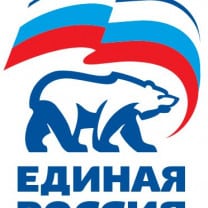
Number of seats: 325
United Russia is the largest political party in contemporary Russia and is considered to be the ‘party of power’. Since 15 April 2008, Vladimir Putin has been the chairman of the party. United Russia was founded in April 2001 when the parties Fatherland – All Russia, led by the then Moscow Mayor Yuri Luzhkov, Our Home Party and the Unity Party of Russia merged.
In 2003 the party published its political manifesto called ‘The Path of National Success’. United Russia is a conservative party whose goal is to unite political forces and support the Russian president in order to enhance national unity. They reject the classical concept of left-wing and right-wing politics as they depart from a static notion of political centrism. United Russia supports a mixed economy in which a free market is combined with state regulation. Economic benefits should be redistributed for the most part to the poorest people. Because its ideology is somewhat unclear, it is best described as a big-tent party.
The party claims to have 2,07 million members (2022) and occupies 325 out of 450 seats in the State Duma after the September 2021 elections, which gave it a constitutional majority. This has been the third time the party enjoys such a supermajority, the first time of which was in 2007. However, in practice United Russia is supported also by other parties in parliament. The Kremlin has enough control over Russia's politics that it will always find a way to implement its desired policies.
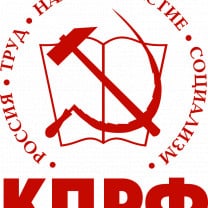
Number of seats: 57
The Communist Party of the Russian Federation (CPRF) is the biggest political party after United Russia and it is the most influential opposition party in the Russian Federation. The CPRF might be considered as a successor to the Communist Party of the Soviet Union (CPSU) but differs in many respects. Its leader, Gennady Zyuganov, co-founded the party in 1993 together with other senior Soviet politicians. Since the 2021 elections the party holds 57 seats in parliament.
The CPRF, as it is formed by Zyuganov, is popular-patriotic in character. It is not a strict communist party, as it no longer prohibits religion and opts for a mixed economy. Its main characteristics are the demand for a strong state, economic equality for the citizens of Russia and social justice for all. It targets the wealth of the new class of oligarchs. Therefore, the CPRF is especially popular with pensioners, industrial workers and non-profit organisations' employees.
After the collapse of the Soviet Union, the Communist Party was prohibited for a while in Russia because of its attempt to overthrow Gorbachev in August 1991. In 1992 a court ruling allowed the party to return to the political scene. Several former Soviet Communists started new communist parties in Russia, but only Zyuganov’s CPRF managed to become successful. During Putin’s presidency Zyuganov has been less popular than before, but still a political force to be reckoned with.
Although the party is in opposition, in practice it supports the government of President Vladimir Putin. The CRPF stood by Putin's decision to invade Ukraine, as it holds NATO responsible for the escalation of the conflict with Russia. It also communicated the "denazification" as main reason for the "special military operation" to its members. There are some CRPF MPs that have spoken out against the war though, suggesting that not everyone in the party might be fully backing Putin's hawkist policies.
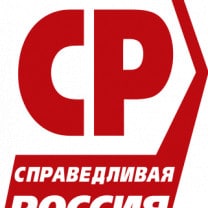
Number of seats: 27
A Just Russia calls for a welfare state with less economic inequality, but protecting individual property rights and maintaining a market economy. Under Sergey Mironov, the party has presented itself as a socialist alternative to the Communist Party and describes its ideology as "New Socialism of the 21st century", but emphasises that it does not wish to return to Soviet style communism. In the 2007–2011 Duma, A Just Russia declared absolute opposition to Prime Minister Vladimir Putin's government, voting against the government's budgets in 2010 and 2011. However, since 2012 there was a noticeable change of the party’s course.
Nowadays, the party mostly serves as a left-wing opponent party to show that the pluralism and multiparty system within the parliament exists while in reality the party is always ready to provide parliamentary votes for United Russia. A Just Russia had the status of full member at the Socialist International (SI), until it was banned following the invasion of Ukraine. The party has no official relations with the European Social Democrats or Party of European Socialists (PES).
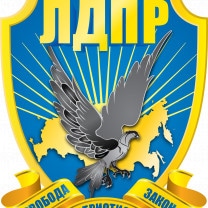
Number of seats: 23
The party's ideology is one of extreme nationalism with imperialistic aspirations, and inclined to strong, even fascist, authoritarian beliefs. The methods it uses, both in and outside the Duma, are highly populist which accounts for the party's ambiguity over economic questions. The LDPR draws most of its support from the marginalised populations of the provinces who have suffered most from transition and reform. Notwithstanding its oppositional stance, in almost all cases, the LDPR votes in favour of the Russian President. It has been a staunch supporter of the invasion of Ukraine.
The party is currently led by Leonid Slutsky, a long-time member of the Duma and holds 23 seats after the 2021 election.
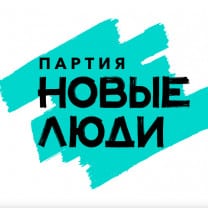
Number of seats: 15
New People is a centre-right and liberal political party focused on the themes of fighting corruption and repression, founded in March 2020 by Alexey Nechayav. Nechayav established the party to channel what he described as opposition sentiment in society, much like Navalny has been doing, though Nechayav is a bit more careful than Navalny. Nechayav refrains from direct criticism of Putin and does not call for his ouster. The party has therefore been accused of being a spoiler party to attract young and liberal voters away from other opposition parties, particularly any associated with Navalny. Nechayav strongly denies any links with the Kremlin.
On 1 June, 2020, the Ministry of Justice added the party to the list of associations eligible to participate in elections, and it has proven more successful than most expected. The party is represented in a number of regional parliaments, and in October 2021 they participated in the State Duma elections for the first time. The party won 5.32% of the votes, leading to 15 seats in the parliament. They became the fifth party to win seats, and the first new party in decades. It is best described as a centre-right party, with a liberal ideology.
Right before the start of the invasion of Ukraine in February 2022 the party did vote against the recognition of the separatist regions of Ukraine as independent states. It argued that this would jeopardise peace and human lives and might trigger an escalation of the conflict in Ukraine. The decisions would distract from the internal problems that Russia faces. Given this, we can expect that many of its party members will not be supporting Putin's "special military operation" in Ukraine currently.
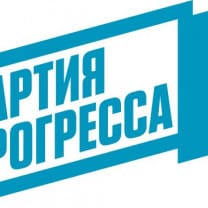
Russia of the Future supports Alexei Navalny, an activist who promotes democracy and tries to fight political corruption. In 2012 the party was established under the name “People’s Alliance” by founder Leonid Volkov. It was refounded in 2018 by Navalny, who also established the non-profit organisation Anti-Corruption Foundation. Russia of the Future staunchly opposes the rule by President Vladimir Putin and his United Russia, wishes to decentralise power, decrease political repression, ensuring independence of the judiciary, ending censorship as well as abolishing conscription, to name just a few points.
The party is considered pro-Western and Navalny would enjoy the support of many Western leaders. However, the party has no seats in parliament. In previous years it was already prevented from participating in elections, but it is not even allowed to exist as an organisation since over a year. In 2021 both the Russia of the Future movement and Navalny's Anti-Corruption Foundation have been designated as "extremist and terrorist" organisations by the Russian state. The entire political network of Navalny was abolished, but via social media and through other means they try to voice as much opposition to the current rule by Putin as possible.
4 Biographies
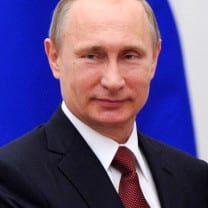
Vladimir Putin is a politician and former intelligence officer at the KGB that has been Russia's President since 2012. Previously he also served as President from 2000 to 2008. He acted as Prime Minister of the country from 1999 to 2000 and between 2008 and 2012. However, in practice Putin has been leaving his mark on Russia's politics since the early 2000s and is currently "in control" of the country. During the early years he managed to give a boost to Russia's struggling economy. In recent years he has been struggling though to mantain high growth levels. The country has become more authoritarian under his leadership as Putin sought to centralise governance, limit the influence of the opposition and abolish the independence of the judiciary.
Putin was born in Leningrad (now Sint Petersburg) in 1952. He graduated in 1975 with a degree in law at Leningrad State University. Afterwards he started working for the KGB, by which he was stationed in East-Germany from 1985 to 1990. After the fall of the Soviet-Union (which Putin describes as "the greatest geopolitical catastrophe of the century") he started working as an assistant to the rector of the Leningrad State University. Following this he quickly made a name for himself at the Sint Petersburg Council, which in turn helped him start his first position as state official at the national government in 1996. Three years later he was appointed as Prime Minister by President Boris Yeltsin.
After becoming acting President of Russia first in 2000, he was officially elected with 53 percent of the votes. He was re-elected in 2004, but in 2008 had to step down because Russian constitution prevents three consecutive presidential terms. He apointed Dmitry Medvedev as President and became Prime Minister for four years. In 2012 he was put forward by Medvedev as presedential candidate and won the election with 64 percent of the votes. However, opposition parties called it a "fraud election" and the results "rigged". International observers also had comments about "procedural irregularities". There were a variety of anti-Putin protests after the election too, but he has firmly remained in power since then. In 2018 he won the election by 76 percent of the votes, which gave him the confidence to take stronger control over the state and an even firmer stance against the West.
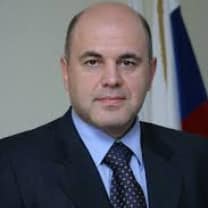
Mishustin was born in1966 not far from Moscow. He graduated in 1989 from the Moscow State Technological University, where he majored in system engineering. In 1992 he completed his postgraduate studies at the same university. After graduating, he began working at the International Computer Club (ICC), which is a public NGO, where he worked on facilitating the integration of Russian and Western advanced information technologies. In time he became the head of the board for the NGO.
Between 1998 and 2008 Mishustin worked for the state service on accounting and control of tax payments. He became deputy tax minister soon, which he served as untill 2004. After a spell at the Federal Agency for Real Estate Mishutin returned to the private sector for a few years. Afterwards he was appointed as head of the Federal Tax Service. Businesses active in Russia hoped that because of his experience within the private sector himself he would "be good for companies". The opposite was true, as Mishustin was criticised for the overly strict approach to business from the Federal Tax Service.
When the Cabinet of former Prime Minister Dmitry Medvedev resigned in January of 2020 to allow President Vladimir Putin to implement constitutional changes that "would shift power away from the Presidency", Mishustin was appointed by Putin as his new Prime Minister. This was despite the fact that the Duma had recommended four different politicians. Mishustin was then voted in as new Prime Minister without any votes against. This was the first time this happened in Russia's political history and makes you wonder to what extent MPs feel free to express their opinion.
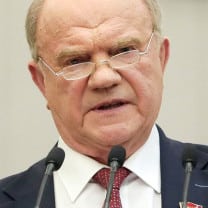
Gennady Zyuganov is a Russian politicians in 1949 in the Oryol Oblast. It was at Oryol Pedagogical Institute that Zyuganov studied physics and mathematics, after which he served as amember of a Radiation, Chemical, and Biological Intelligence unit in Germany. Upon arrival back in Russia he teached mathematics, but quickly became politically active as part of the Communist Party. He has remained a staunch supporter of the more traditional communist rule, criticizing Boris Yeltsin during the 1990s advocating for a return of the kind of socialism in the pre-Gorbachev days. Zyuganov was one of the founders of the Communist Party of the Russian Federation (CPRF), the successor of the Soviet-era Communist Party, that had fallen in disarray.
Zyuganov soon became Russia's main post-Soviet opposition leader, seriously challenging President Yeltsin's rule. He combined Russian nationalism with the Communist ideology and was highly critical of Western ideas that had become embedded in Russian society. He was highly critical of growing inequalities as a result of free-market reforms that had been implemented. There is still controversy about the 1996 presidential elections won by Yeltsin, of which some claim it was full of fraud. The popularity of Zyuganov started to decline after the invasion of Chechnya and the rise of Vladimir Putin on the national stage.
Since the 1990s, Zyuganov has remained an important political figure in Russian politics though. He took part in the 2008 and 2012 presidential elections, finishing second both times. He has remained critical of Putin's rule, especially with regards to its economic policies. However, Zyuganov supports many of the government's policies mainly when it comes to foreign policy. He views that Putin's plans for Russia remain true to the country's Soviet roots. Given this, Zyuganov has been supporting Putin in his invasion of Ukraine and has been put on the sanction list by most Western countries.
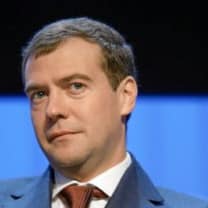
Dmitry Medvedev was born in Leningrad (now Sint Petersburg) in 1965. He graduated from the Faculty of Law at the Leningrad State University in 1987 and completed his post-graduate studies at the Leningrad State University in 1990. Medvedev holds a PhD in law and the title of associate professor. The first years of his career Medvedev spent at Sint Petersburg State University, where he lectured. Meanwhile, he was consulted as on External Affairs for the Leningrad City Council. In 1999 he transferred to the Presedential Executive Office, whilst he also became Chairman of the Board of Directors of Gazprom.
His political career kicked-off when Medvedev was endorsed by the ruing United Russia party during the presedential elections of 2008. After the election, Medvedev was elected as President of Russia, succeeding President Vladimir Putin with 70 percent of the votes. Four years later he nominated Putin as the United Russia presidential candidate, himself heading the party's list in parliamentary elections. Medvedev became the country's Prime Minister then, which he remained from 2012 to 2020. When Putin proposed several consitutional amendments in 2020, Medvedev's Cabinet resigned. Since then he has been Deputy Chairman of the Security Council of Russia.
Medvedev was and is a close ally to Putin. During his Presidential rule there was much speculation about who wielded power, President Medvedev or Prime Minister Putin. Up until then, Russia's Prime Minister has been subordinate under the President, but with Putin this seemed different. Upon Medvedev's election as President there was some hope in the West that this could lead to more liberal policies. However, after the Russian-Georgian war of 2008 this sentiment had all but dissapeared.
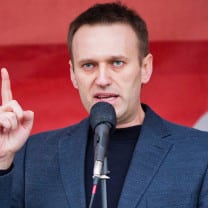
Alexei Navalny is a Russian lawyer, political and financial activist, and politician, who was born in 1976 in the neighbourhood of Moscow. In 2009 he gained prominence in Russia by criticising President Vladimir Putin and the problems related to corruption that the country faces. Navalny has a blog and organised large-scale demonstrations to promote democracy and to attack political corruption. According to the Wall Street Journal, he is “the man Vladimir Putin fears the most” (2012). Representative of this is Putin's insistence not to mention Navalny by his name. Currently Navalny remains imprisoned, his party was abolished by the government and all acitivities of his political network are banned.
In 2013 Navalny ran in the Moscow mayoral election and came in second, with 27 percent of the votes. However, he discredited the results and voiced that authorities has committed fraud to make sure a pro-Putin candidate would become mayor. Since then Navalny has been arrested numerous times and was even convited of embezzlement. This prevented him from running in the 2018 presidential elections. He was barred "due to his prior criminal conviction". Regardless, his political organisation sparked mass protests in Russia after their documentary revealed many details of corruption amongst the current government.
Navalny became more famous in the West after he was poinsoned with a Novichok nerve. He was flown into Berlin, where he was treated in the hospital for over a month. Upon arrival back in Russia he was detained. Another documentary was released, accusing Putin of corruption. Mass protests followed again. His suspended sentence was followed by an actual prison sentence of two-and-a-half years. This was later extended with another nine years as he was found guilty of embezzlement and contempt of court. This latest trial was considered a complete sham by organisations such as Amnesty. From his high-security prison Navalny continues to voice as much opposition as possible, not only against Putin's invasion of Ukraine.
Subscribe to our newsletter
